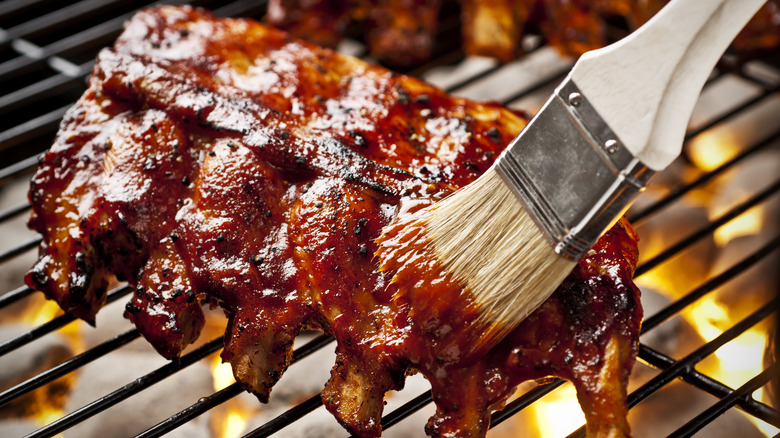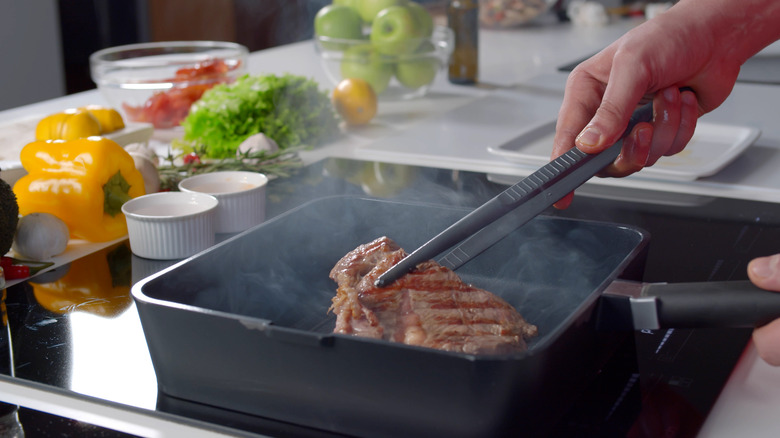Grilling can get messy, which is why grilling outdoors is so great. You can just let the rain wash away whatever bits of food and oil flung themselves off to the side. That’s not the case once you step indoors, which means you need to be mindful of how you’re cooking if you don’t want to spend the rest of your afternoon cleaning. We had a chance to talk with McCormick brand partner Max Greb (aka Max the Meat Guy) about his best tips for grilling indoors, and dry rubs were front and center in his mind.
“I generally prefer dry rubs when cooking indoors,” Greb told us. “Marinades and sauces often lead to burnt pans and, due to the sugar content, can be messy.” It’s all about cooking smarter, not harder, and Greb’s got grilling down to a science. The difference between a dry rub and a marinade primarily comes down to the medium through which you’re applying the spices. Marinades use a liquid like oil, which you then submerge the meat in to allow it to soak up whatever flavorings and spices you’ve added into the marinade. A dry rub, on the other hand, skips the liquid and has you applying your spice blend directly to the outside of the meat. There are different reasons why you might choose one over the other but, when you’re cooking indoors, Greb prefers the dry rub because the food isn’t going to splatter as much.
There are other ways to add liquids to your indoor grilling session

Before the marinade fans throw their hands up in the air and denounce indoor grilling forever, there are other ways to use sauces than as a marinade proper. Greb explained, “If you do want to incorporate a sauce, wait until the meat is nearly done cooking to glaze and caramelize.” Marinades are best when you’ve allowed the meat to soak in it before cooking because that lets the spices in the marinade penetrate deeper into the cut of meat. If you’re planning on glazing your meat the way Greb is describing here, you’ll want to opt for a recipe that’s specifically made for glazing, as a marinade is doing something slightly different. On the bright side, a simple glaze recipe will often have an outsized impact on the flavor.
But the glaze isn’t entirely necessary for this to work. Dry rubs are a popular option regardless of where you’re grilling. The fat content of what you’re cooking will keep the meat moist even with a dry rub so long as you aren’t overcooking it; just don’t forget to salt your meat before you apply the dry rub for best results. If you’re really worried about dinner turning out dry, remember that marinades aren’t the only way to add moisture. “A great way to take indoor grilling to the next level is to add a dipping sauce once your food is done,” Greb added.







